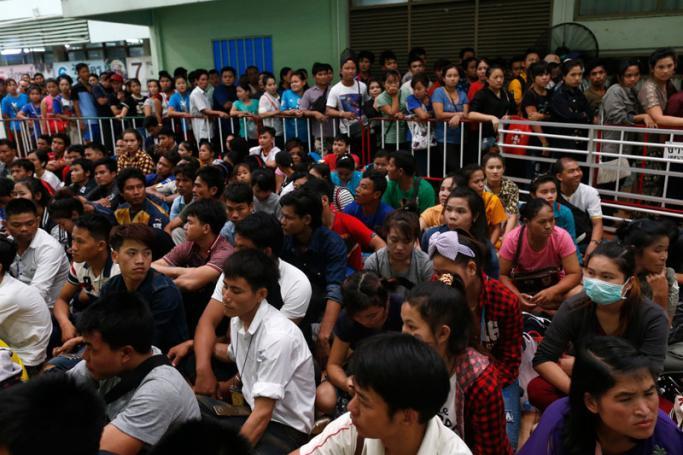Myanmar migrants are part of the thousands of migrants stranded worldwide by the coronavirus pandemic response.
Many thousands of migrants have been left stranded, unable to move due to lockdowns and border closures around the globe, the United Nations said.
The UN's International Organization for Migration said in southeast Asia, east Africa and Latin America, many were attempting to return to their countries of origin but were unable to do so.
Migrant camps were "very prone" to spreading the disease, IOM Director General Antonio Vitorino told reporters in an online briefing.
"There are thousands of stranded migrants all over the world," he said.
"Lots of migrants that were on the move, some of them wanted to return to their country of origin, precisely because of the pandemic," he said, adding that others had become "stranded" on their migratory routes.
"They are blocked in the border areas in very difficult conditions without access to minimal care, especially health screening," he said.
"This is a source of enormous concern."
Vitorino said the IOM was asking governments to allow aid workers in to access large groups congregating near borders.
- Asking the impossible –
The former Portuguese defence minister said overcrowded conditions among migrants stranded at borders are so bad that "social distancing is unthinkable and access to water and sanitation is quite a challenge.
"We cannot ask people to do what is impossible," he said.
"If the disease spreads in the camps it will have a major impact."
The IOM manages around 1,100 camps worldwide and assisted roughly 2.4 million displaced people in 2019.
Some 220 cases of COVID-19 illness have been reported in IOM-run migrant camps in mainland Greece and been treated in the Greek healthcare system.
Vitorino said he was particularly concerned about what might happen if the virus took hold in Cox's Bazaar in Bangladesh, where more than a million Rohingya refugees have fled to from neighbouring Myanmar.
- Med crossings down –
He said the crisis had caused a decrease in attempted crossings of the Mediterranean Sea between Africa and Europe.
But the lockdown restrictions have only created "a backlog of people waiting" -- stranded migrants who, once movement restrictions start to lift, will head for Europe again.
Vitorino said the criminal networks of smugglers and traffickers were "ready to start working immediately" after the crisis subsides.
The IOM was also worried about migrants being held in detention and those in "extremely prone" urban slums, particularly in South America.
Vitorino called for migrants to be allowed to access national healthcare systems regardless of their immigration status, citing Singapore where a "successful fight" against the disease was undermined by migrants not being included in screening programmes.
He also said migrants needed to be "fully included" in economic recovery plans, citing World Bank figures forecasting sharp falls in remittances to Africa this year.
AFP












